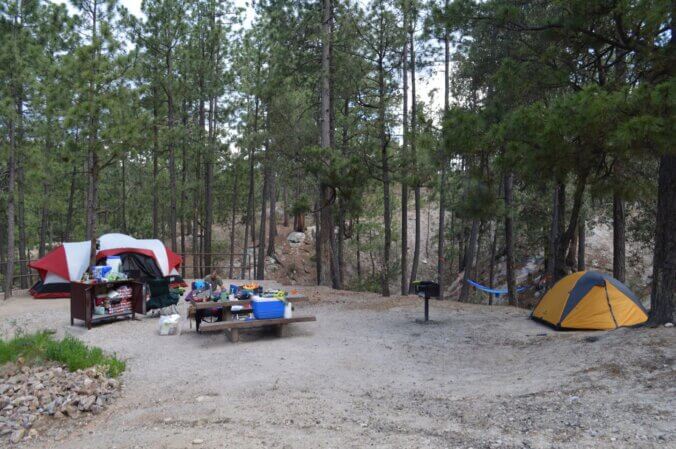Your bags are packed and your route all mapped. Do you ever feel like you are forgetting something as you close and lock your door? Here are five areas that you may or may not have thought about adding to your trip planning logistics.
1. Weather, environment, and elevation.
How many times have you checked the local weather packed for that weather and headed off? Once you get there you realize that you will be climbing a mountain and you only packed your summer gear and it’s going to be a little chilly up there. Maybe you did not pack enough rain gear for a very wet outing because of afternoon showers brought on because of the monsoon season. Knowing weather patterns, environmental patterns, terrain, and elevation before you go is key to planning trips.
Knowing this type of information you can properly pack for the conditions and by being prepared in advance have a much better time instead of battling the elements. Andrew Skurka professional hiker extraordinaire talks about this very thing in his talk about Trekking the Wild north for National Geographic. You can watch his speech here. Skurka says that he even goes as far as looking at the weather patterns from the past several years in the area to help him be more prepared. Have you done this or how do you prepare for your adventures?
2. Passports, Passes, Permits, and Paperwork.
Have you created a list of all the paperwork that will need to be done before you head off? Will you be leaving the country at any point and will need a passport? Will your adventures require any special transportation visas, or special passes to allow you to travel through that section of the country? Did you get a camping permit even though you paid your entrance fee into the national park? These are just several of many questions that you might consider asking yourself before you even start to pack your bags. Depending on where you are going and for how long may cause a headache from the paperwork alone.
The best way to figure out what paperwork is needed is to head to the internet and spend some time researching. Guide books are also a valuable resource that will give you more than just information on trip preparation. Another good way is to talk to people who have gone on a similar trip or have been through those areas you want to explore. Another great option is to call up a local travel agent or embassy of the country you are traveling to and set up a meeting to discuss your plans. They will have lots of information for you as well as documentation for trips just like yours. It never hurts to have more information than you need. How have you done the research for your trips?
3. Shots, Medications, and Physicals.
Depending on where you are going they may require you to have special vaccinations before ever leaving your home. It also would not hurt even if you do not need any special vaccinations before your trip to go and get a full health physical done. Just to make sure there are no issues that may need to be attended to before leaving. Also, this will allow you to make sure that your vaccinations are up to date as well as allow the doctor to provide you with enough medication for your upcoming trip. If you take medications at all having plenty on your trip will be very important. How do you plan on supplying yourself with your medications and do you have any emergency plans in case you run out or can’t get to a pharmacy?
4. Insurance.
What kind of insurance do you travel with? There are lots of different types of insurance and lots of different places you can get it from. In my opinion, the most important insurance to have is emergency health. Emergency health is pretty self-explanatory. In the event you have to be pulled from a mountain by helicopter or taken to the emergency room most Emergency health insurance can cover it. It can also cover any unexpected medical costs you may encounter during your trip. The next one would be either ticket/trip insurance or luggage insurance. Never know when your cruise might be canceled because of a hurricane. You also never know when the airlines might lose or damage your gear.
If you are flying, on a cruise, or with a tour group, many of the packages have insurance included in the travel package. Just because they have it does not mean it is always the best or the cheapest. Spend some time looking over what they offer and see if you can find your own at better prices or with better offerings. Never settle for what’s there because it might not always be best for you.
5. Wills and Power of Attorney.
When going on any kind of extended journey one might consider either getting a will or revising your current will and power of attorney if you already have one. If you are not familiar with what a will does it allows you to provide instructions on how you wish things to be completed upon your passing or if you are unable to take care of yourself due to injury during hospitalization. Wills are a bit more complicated than that but if you want more information about them I would talk to your lawyer. The other important setting is the Power of Attorney.
Power of Attorney allows people whom you choose to act on your behalf if you are unable to. You can be as detailed or generic as you wish. I highly recommend talking to an actual attorney about these types of items because it is imperative that you have them completed correctly for those who would be taking care of you. There are many ways to accidentally skip over items because the right questions were not asked. It opens the door to many “what if” questions and can begin to look very daunting. Taking the time to speak with a lawyer will help you answer these questions and complete these important documents correctly. It will also help those who might be helping you if an emergency does occur.
What do you do to plan for your trips? What other suggestions do you have for others who are planning trips?




Leave a Reply